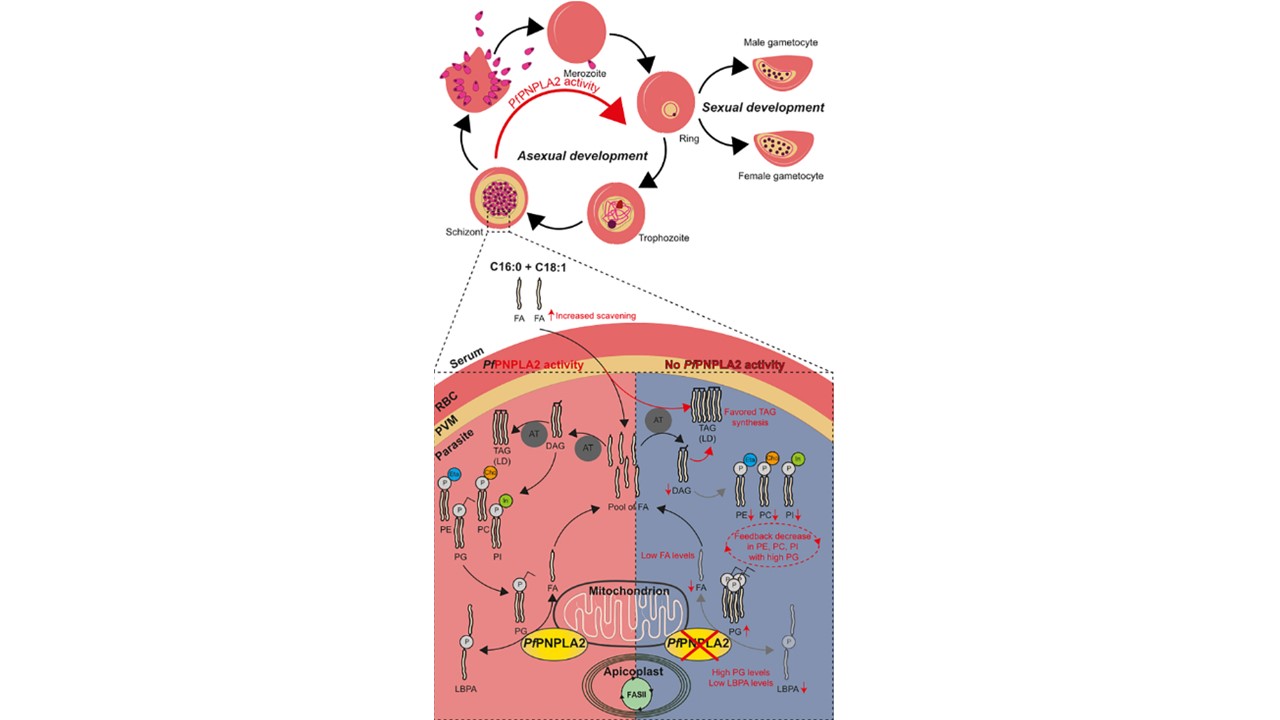PfPNPLA2 is involved parasite development via the conversion of PG to LBPA. Normal PfPNPLA2 activity (during schizont and ring stages near the mitochondria) facilitates the utilization of phosphatidylglycerol (PG) into free FA and LBPA/BMP pool of FAs generated by FASII, host scavenging and this process can then contribute to lipid storage generation (triacylglycerol, TAG) and PL synthesis via the CDP-DAG pathway (PC: phosphatidylcholine, PE: phosphatidylethanolamine, PI: phosphatidylinositol). In the absence of this protein PG levels are increased with lowered levels in LBPA and FFA. We hypothesize that the lack of sufficient FFA prompts the parasite to increase host FFA scavenging of C16:0 and C18:1. This does not restabilize FFA to normal and instead TAG formation (LD: lipid droplet) is favored to escape lipotoxic death. The increase in PG has a negative feedback effect and PL synthesis (PC, PI, PE) is inhibited.
Shunmugam S, Quansah N, Flammersfeld A, Islam MM, Sassmannshausen J, Bennink S, Yamaryo-Botté Y, Pradel G, Botté CY. The patatin-like phospholipase PfPNPLA2 is involved in the mitochondrial degradation of phosphatidylglycerol during Plasmodium falciparum blood stage development. Front Cell Infect Microbiol. 2023 13:997245. 38089812
